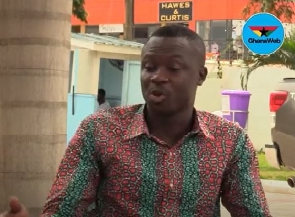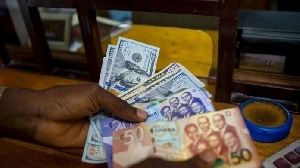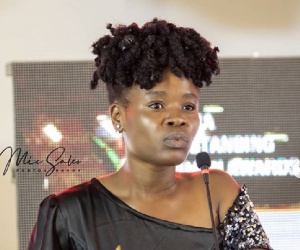- Home - News
- TWI News | TV
- Polls
- Year In Review
- News Archive
- Crime & Punishment
- Politics
- Regional
- Editorial
- Health
- Ghanaians Abroad
- Tabloid
- Africa
- Religion
- Election 2020
- Coronavirus
- News Videos | TV
- Photo Archives
- News Headlines
- Press Release
General News of Saturday, 15 March 2003
Source: Woeld Link
A FRESH START: Inteview With Kwesi Nduom
In January 2001, Jerry Rawlings, a former officer who seized power through a military coup and later turned himself into an elected civilian president, yielded power to a long-time opposition leader. The peaceful democratic transition cheered those who believe Africans can solve their own problems, and provided hope that peaceful political and social change in the sub-Sahara is possible. Yet despite the new government, Ghana has struggled with a stalled economy. Kwesi Nduom, Ghana’s economics minister, spoke to World Link about the future of his country of 20 million people.
The government talks about creating a "golden age for business" in Ghana. Why is reform so slow?
The transition has been an unusually long one, in part because we’ve not had a history of such transitions. No one [in the new government] knew what to do because this was the first time power was peacefully and legally transferred from one political party to another.
The history of being an opposition party in Ghana means you’re practically shut out from all affairs of state. When we took office we were shocked at the state of government and fiscal affairs.
Can you give an example of the problems you continue to face?
Consider our "ghost workers" – people on the government payroll who never showed up for work. We have found a huge percentage of ghost workers, and we are stripping them from the payroll. But it takes time.
The global economic slowdown hurts Ghana’s prospects, as it does other poor countries’. Can you point to economic achievements?
We’ve cut inflation in half, to 23% from 43%. Loan rates have come down by one-quarter. Our national currency, the cedi [which lost half of its value in 2000], is stable. Depreciation last year was 4%. That’s decent.
You want Ghana to attract more foreign investment, but how important is national self-reliance, especially in agriculture?
We spend $100 million a year on importing rice alone. We want to become self-sufficient in basic foods that we eat. In the next three years we want to reduce imports significantly. Further out, we want to add value to our agricultural produce, whether it is cocoa [Ghana is a leading producer], pineapple or cassava. We want to become an important agribusiness country by 2010.
Are you optimistic about Ghana’s economic prospects?
Our economy will improve this year because of the government’s fiscal responsibility. [Unlike past governments] we won’t spend haphazardly without a plan, only spend what is necessary and the money we have.
Another reason for optimism is the debt relief Ghana has been granted from the World Bank and many foreign lenders. This will save us $200 million this year and about $1 billion over four to five years. Not only will these savings go into productive uses, the relief helps stabilise our currency.
After 20 years of one-party rule, there is a hunger for democracy in Ghana. Citizens have great expectations. How do you manage expectations during a time of weak economic growth – and keep people from blaming democracy for their problems and growing nostalgic for authoritarian rule?
We will avoid this because we want the ordinary person to feel the dividend of democracy, to feel this dividend in their pocket. You can talk about the nice things of democracy but people want to see their lifestyles improve.
There is rising social unrest as evidenced by spontaneous protests and increased crime in Ghana, well-known for its lack of violence and relative harmony. How do you explain this development and what will you do about it?
People must have a means of expressing themselves. What we want to do is listen so that we understand people’s frustrations, know what’s going on and don’t overreact. We want to find solutions to the frustration from unmet expectations. When we must respond with increased security and policing, we will. But security forces must do their jobs without interfering in people’s lives. On the other hand, some people need to find more positive means of expressing themselves and realise that this will make them more likely to be heard.










